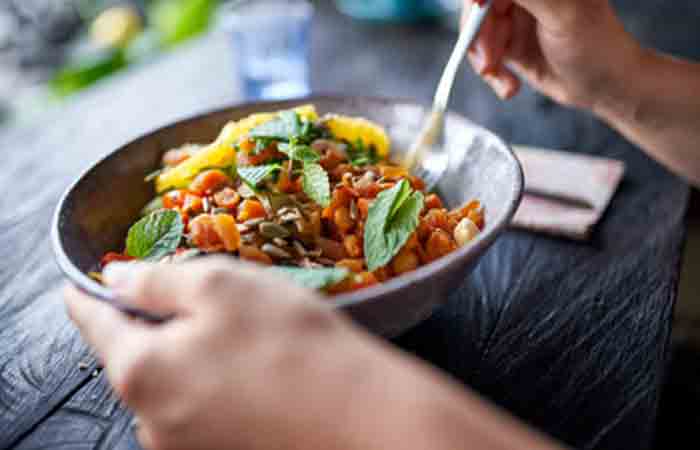Breastfeeding moms need healthy, nutrient-rich foods to make enough milk for their baby. But some food and drink items should be limited or avoided altogether.
For example, some ocean-swimming fish like shark, swordfish and king mackerel can have too much mercury to be safe. Also, freshwater fish (like trout and tilapia) may contain chemicals.
1. Caffeine

Many new moms are surprised to find that caffeine—found in coffee, tea, some sodas and even some chocolate—can reach their baby through the breast milk. While a small amount of caffeine doesn’t harm your baby, too much can overstimulate them and make them fussy.
It’s usually safe to have up to 300 milligrams of caffeine a day (about three cups of regular coffee) while breastfeeding, but it’s best to try to keep it to two or less cups. Try switching to decaffeinated coffee or opting for herbal tea instead, which is generally lower in caffeine. And, stay away from energy drinks as they can contain high levels of caffeine and extra vitamins that may be dangerous for breastfeeding mothers.
Also, try to avoid drinking caffeine right before or after nursing/expressing/pumping as it can take a few hours for the caffeine to clear out of your system. For more specifics, talk to your healthcare provider. They can give you guidance based on the latest research.
2. Alcohol

While many women have a glass of wine or an alcoholic drink during pregnancy, they should avoid alcohol while breastfeeding. Even a small amount of alcohol can pass into breastmilk, and baby can be affected by it. Alcohol can also decrease milk supply and cause sleep, feeding and growth problems in infants.
Alcohol may also change the flavor of breastmilk, which babies sometimes find unpleasant. It takes about two hours for the body to metabolize one drink, so it is best not to breastfeed during that time. If you do have an alcoholic beverage, wait at least two hours to breastfeed or express and pump before doing so. If you are concerned about a particular meal, it’s possible to nurse before consuming alcohol and then pump and dump the milk afterwards. It is not known if long-term exposure to very low amounts of alcohol in breast milk harms infants. But, it’s better to be safe than sorry.
3. Food Allergies
While there’s a temporary connection between breastfeeding and food allergies, it’s not clear that moms’ avoidance of foods will prevent allergy development in their infants. It’s a good idea to keep a log of the foods you eat, your baby’s symptoms and their severity to see if there is a correlation. Common allergens include dairy products, egg products, fish, peanuts and wheat, browse around this website.
Babies can also be sensitive to the foods their mothers eat, but these reactions are less severe than allergies and usually only affect a few of the body systems (for example, stomach or respiratory problems). Spicy food and breastfeeding can go hand-in-hand without a hitch, Hawkins says, but she suggests avoiding it if your baby seems fussy or gassy after you eat spicy foods.
Other foods that cause sensitivity include cabbage and other gas-producing foods; dairy products like milk and cheese; fish, including king mackerel and swordfish, which have high levels of mercury; and chocolate. Iron is an important nutrient for babies, so lean meats, dark leafy green vegetables and iron-fortified cereals are healthy alternatives to these foods that may not contain enough iron.
4. Garlic

Many moms fear that consuming garlic will impact their breastfeeding babies. The reason for this is because the garlicy smell of allicin — which gives a food its odor — can transfer to breast milk, according to research. This can cause a baby to be fussy or pull off during nursing.
It’s also true that strongly flavored foods — like garlic or spicy dishes — can change the taste of the mother’s breast milk. However, this isn’t a problem in all cases. Some babies are not bothered by this flavor profile at all and may be quite content to nurse just fine.
Conclusion:
Some moms have heard that certain herbs, such as parsley, sage or peppermint, can reduce a new mother’s milk supply. However, there isn’t any evidence that this is the case. It’s important to remember that what works for one baby may not work for another, so don’t be afraid to experiment with different herbs and spices!
